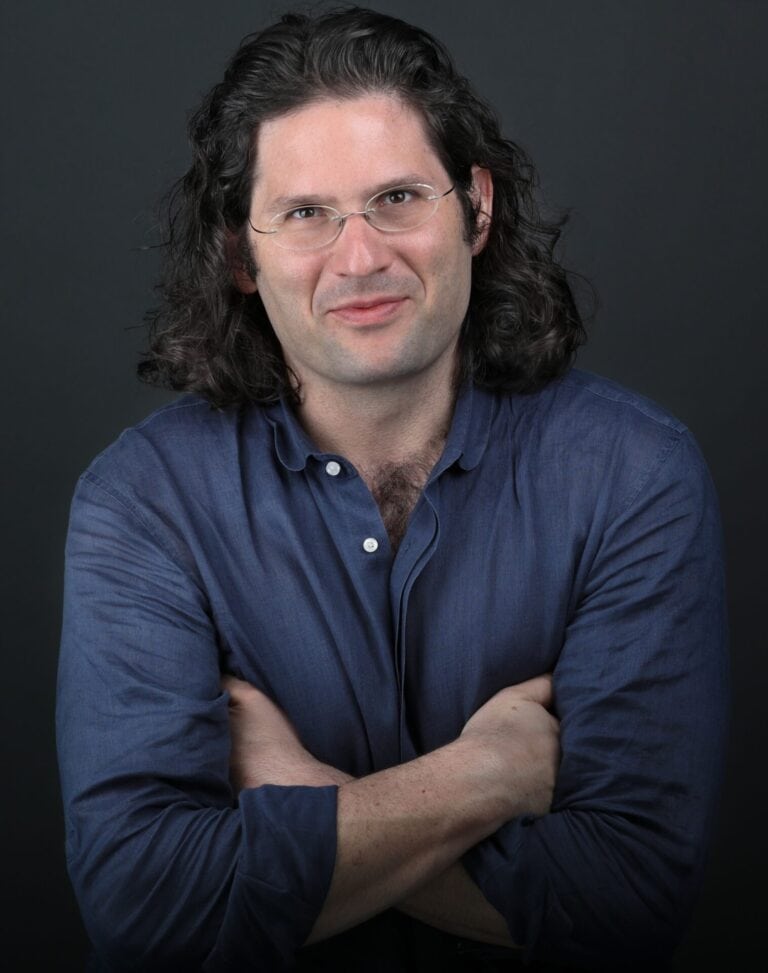It’s fair to say that 2023 was one of Israel’s worst years ever.
First there was a growing schism around the controversial government plan to overhaul the judiciary. And just when it seemed we were heading into a civil war, a war of a different sort was thrust upon us by Hamas in its murderous attacks of October 7.
Against that grim backdrop, we asked three futurists what we might expect in 2024.
The watchword is AI
US-based futurist, media pundit and serial entrepreneur Michael Fertik says the biggest trend may not be visible to the average person but it’s transforming every high-tech industry – and that is artificial intelligence (AI).

Fertik is a founding member of the World Economic Forum Agenda Council on the Future of the Internet, and founder of Heroic Ventures, an early-stage VC focused on Silicon Valley and Israel.
Fertik predicts that in the field of visual AI, “gaming and fashion experiences will see radical overhauls unfold in how gamers create their own environments and how consumers preview their wardrobe and accessory choices.”
An example from Heroic’s Israeli portfolio is Exists.ai, which is building a generative AI game creation platform enabling the generation of production-ready multiplayer games in minutes.
In fintech, he says, AI “will soon become the most important tool that investors of all kinds, from retail to hedge funds, use to improve their analysis and make decisions.”
Israel’s ProntoNLP, for instance, is powering investment decisions with hyper-accurate large language models for financial analysis. Another Israeli fintech in his portfolio, Sunbit, uses AI and machine learning to offer products and manage risk in pay-over-time technology.
Fertik also believes that in 2024, AI will continue transforming healthcare and — despite setbacks in 2023 – the development of autonomous vehicles.
Self-driving technology, he says, “is not only very good but in most cases better than the average human driver. We may not see [autonomous] highway driving yet, but we should expect a return to cities and a marked growth in campus- and other closed-environment applications.”
Fertik tells ISRAEL21c that Israel is considered a top-four country in artificial intelligence.
“Israel not only has strength in the basic science, but many of the skills and applications that give life to Israel’s excellence in cyber have cross-application in AI. In many ways, Israeli cyber has already been in ‘AI-mode’ for years, with breakthrough machine learning that enables its high-throughput analysis and threat detection.”
Fertik predicts that the current war will have a silver lining of accelerating Israel’s AI development and leadership.
“The war both requires and enables Israel to build and train unique models that assist in target detection, identification and prioritization,” he says.
“Millions of hours of video and audio are being analyzed by computer and re-analyzed by expert IDF personnel in order to differentiate hostages from terrorists, civilians from Hamas, friendly fire from enemy attacks, and immediate-priority targets vs. less pressing threats,” Fertik explains.
“These new, unexpected, and regrettably hard-won datasets will be the training ground for novel and accurate models.”
These AI developments will, for instance, impact civilian robotics with more accurate self-piloting, more accurate handling of objects, and more accurate perception of new and diverse environments.
“Perhaps even more important is that the soldiers operating in these fields will, like their cousins in [signal intelligence Unit] 8200 and similar units, eventually return to the civilian sector and be uniquely equipped to offer real-life AI insights and learning — in defense fields but just as importantly outside of defense fields — to the Israeli and non-Israeli companies they join and found.
“Israel will see many allied and even non-allied countries seek out Israel’s excellence and experience in the years to come.”
Security, trust, solidarity

Trends forecaster Adi Yoffe, head of the Fast Forward business futurist company in Tel Aviv, sees the influence of AI in a different light.
She predicted last year that AI and other technologies would lead Israel into a “New Chauvinism” movement.
She said this would lead us to distance ourselves from confronting real facts and from engaging other sides in complex political or social situations. This was seen in the polarizing anti-judicial reform protests in the first nine months of 2023.
Yoffe’s annual forecast for 2024 is informed by what happened “when New Chauvinism met the watershed moment of October 7.”
“Until that moment, we had distanced ourselves from reality and lived peaceful lives at the top of Maslow’s Hierarchy of Needs pyramid as a flourishing democratic country,” she says.
In that pyramid are five layers, from bottom to top: physiological, safety, love/belonging, esteem, and self-actualization.
“October 7 brought us simultaneously to the bottom of Maslow’s pyramid, face to face with reality and seeking to ensure our physical security and defeat our enemies,” she says, “and at the same time we were at the top of Maslow’s pyramid as a successful Western capitalist country,” Yoffe explains.
“In my opinion, the trends of 2024 in Israel are influenced precisely by this process,” she continues.
“In 2024, we will want to feel safe, and therefore phenomena related to defining security, trust and solidarity will be the trends of the coming year in Israel” and will spread to the wider Western world.
She believes this trend includes:
● The desire for emotional closeness.
“After years of being disconnected from reality and our emotions, we are hungry for deep and meaningful human connection. This is reflected in our desire to spend more time with loved ones, connect with nature, and experience positive emotions like joy, love and excitement. People will seek smaller, more intimate experiences. These experiences provide security and create clear boundaries.”
● The desire for reliable, real information.
“Brigadier General Daniel Hagari, the IDF spokesperson, was someone who instilled security evening after evening on the Israeli screen and became a reliable source of information during wartime. But it is not just about this type of information. People who do real things, with a real legacy, will gain renewed popularity, and therefore knowledge that is passed down from generation to generation will be part of the trend.”
● Cooperation, but not the usual kind.
“Just as companies know how to cooperate on sustainability issues, we will see companies and organizations collaborating together around a goal that is greater than them. Israeli companies are collaborating around the goal of promoting ‘blue and white’ products in the world during the war, and photography and image companies are collaborating to bring real images and avoid forgeries,” says Yoffe.
Polycrisis pattern

Yet another perspective comes from trendologist, lecturer and designer Nataly Izchukov, owner of The Visionary trend forecasting and research agency in Tel Aviv.
“In the last few years, many people have been feeling like they’re constantly battling: viruses, economic crises, declining trust in government and politics, pollution, new technologies, and a genuine fear of the future,” she tells ISRAEL21c.
“We can say with full certainty that in the past three years — and counting — we’re in the midst of a ‘polycrisis’ pattern that has been accompanying us since Covid, throughout political and geopolitical swings, economic and social crises, wars, ongoing natural disasters, and again, massacre and war.”
It’s therefore fair to assume that at least for the next two years we’ll be coping with trauma and crises, Izchukov says.
Driven by “the human need for hope, healing and mental relief,” she says, we’ll employ four behavioral coping mechanisms: fight, flight, freeze or fawn. These 4Fs will impact many sectors and industries globally.
“Fight” will manifest itself as a desire for change and creating new rules, with an aesthetic rooted in the colors of blood and mud.
“Flight” will harness the power of artificial intelligence toward creative solutions such as clothing that protects us in emergency situations.
“Freeze” will mean a desire for delicate jewelry made of silver and other metals.
“Fawn” is The Visionary’s word to describe a trend toward “tribal togetherness and collective care.”
“In 2024, we will collectively improve our understanding of how technology can empower a new age of human creativity, how it can create optimistic, joyful, non-dystopian design codes, and how it can alleviate loneliness and add meaning to humans,” says Izchukov.
















